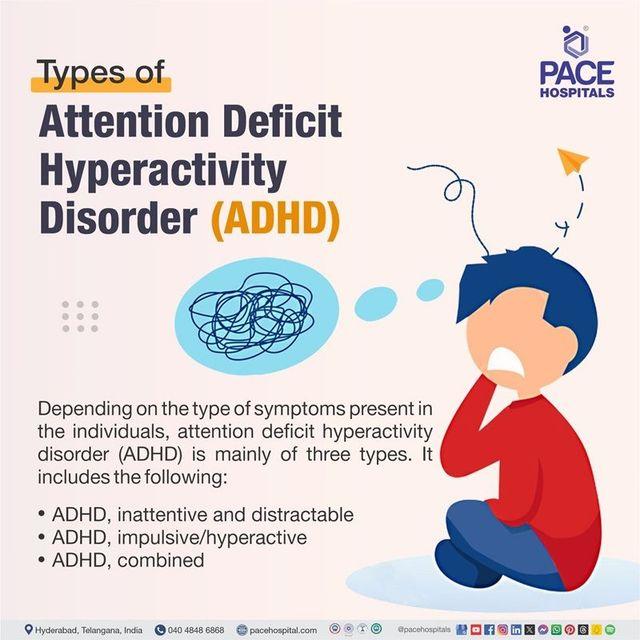As the landscape of healthcare policy continues to evolve under the weight of political change, the implications for specific areas of medical research become increasingly pronounced. One such area is Attention Deficit Hyperactivity Disorder (ADHD), a condition that affects millions and has long been at the fringes of funding priorities. With the recent appointments within the health departments of the Trump administration, questions arise: Could these new figures usher in a shift in the way ADHD research is prioritized and funded? As we examine the intricacies of this potential turning point, we delve into the broader context of ADHD research, the historical funding trends, and the possible impacts of current leadership choices. In a time of shifting priorities, understanding the ramifications of these appointments could illuminate paths for future research and treatment options for those affected by ADHD.
Table of Contents
- Exploring the Implications of New Health Appointments on ADHD Research Priorities
- Assessing the Current Landscape of ADHD Research Funding in a Changing Political Climate
- Strategies for Advocating Increased Investment in ADHD Research Amid Policy Shifts
- Engaging Stakeholders: Collaborative Approaches to Influence ADHD Funding Decisions
- Q&A
- Wrapping Up

Exploring the Implications of New Health Appointments on ADHD Research Priorities
With new health appointments making waves in government circles, the potential for a transformative impact on ADHD research is palpable. As priorities shift within health agencies, funding allocations may no longer reflect the previously established norms, potentially leading to a redirection of resources toward more innovative and less traditional research methods. The appointment of officials with differing views on ADHD can foster a debate around the validity and necessity of current treatment approaches, opening the door for new perspectives that could redefine understanding of the disorder. This evolving landscape also raises questions about the focus areas of future research, which may include:
- Neuroscience Innovations: Exploring the neural mechanisms underlying ADHD.
- Behavioral Interventions: Assessing the effectiveness of alternative therapies.
- Diverse Populations: Investigating ADHD manifestations across demographics.
Furthermore, as these newly appointed health officials establish their agendas, the role of public advocacy can significantly shape funding priorities. Advocates and stakeholders will need to mobilize, ensuring that ADHD research remains a priority within the evolving health policy landscape. The urgency for focused attention on ADHD can pave the way for collaborations between public, private, and academic sectors, leading to a synergistic approach towards research funding. A simple comparison of anticipated funding shifts reveals:
| Funding Source | Current Focus | Potential Shift |
|---|---|---|
| Government Grants | Medication-oriented research | Improved psychosocial interventions |
| Private Foundations | Pharmaceutical development | Behavioral and lifestyle studies |
| Academic Institutions | Traditional clinical trials | Longitudinal and community-based studies |

Assessing the Current Landscape of ADHD Research Funding in a Changing Political Climate
In the evolving realm of ADHD research funding, the appointment of key health officials under the Trump administration sparks significant debate. As the political winds shift, one must consider the implications of leadership changes on budget allocation and prioritization of mental health initiatives, particularly ADHD. Experts highlight several factors influencing this transition:
- Policy Shifts: New regulations can alter funding streams, potentially leading to increased or decreased financial support for ADHD programs.
- Stakeholder Influence: Advocacy groups may gain or lose traction based on the administration’s priorities, shaping the destiny of research funding.
- Public Perception: Changes in societal attitudes towards mental health can drive government investment, especially under new health appointees.
As the landscape of ADHD research funding becomes increasingly intricate, it’s essential to evaluate projected trends with an analytical lens. Deviations in appropriations can be expected, yet understanding the mechanisms at play is crucial. A closer inspection of current funding allocations reveals:
| Funding Source | 2022 Allocation | 2023 Projection |
|---|---|---|
| National Institutes of Health (NIH) | $100 million | $120 million |
| Private Grants | $50 million | $40 million |
| State-funded Programs | $30 million | $35 million |
These projections paint a nuanced picture, signaling potential increases in government-backed research while hinting at challenges faced by private funding sources. Such dynamics underlie ongoing discussions within the ADHD community about the future of research funding amidst a backdrop of changing political appointments.
Strategies for Advocating Increased Investment in ADHD Research Amid Policy Shifts
As the landscape of health policy undergoes significant changes, it is essential for advocates of ADHD research to adopt strategic approaches that resonate with decision-makers. One promising avenue is to leverage data-driven narratives that highlight the socio-economic impacts of ADHD. This can include presenting compelling statistics on the long-term economic burden of untreated ADHD and emphasizing the potential for improved academic performance and workplace productivity through targeted research investments. Engaging influential stakeholders, such as patients, educators, and employers, can amplify the message, fostering a collaborative effort that places ADHD research at the forefront of public health discussions.
Moreover, forming strategic partnerships with organizations that focus on mental health or neurological disorders can create a broader coalition advocating for ADHD research funding. There are several effective tactics within these partnerships, including:
- Creating joint campaigns that align ADHD research funding with broader mental health initiatives.
- Utilizing social media to elevate personal stories that underscore the importance of continued ADHD research.
- Organizing webinars and community forums to educate the public and stakeholders about ADHD and its diverse impacts.
Additionally, establishing a consistent dialogue with policymakers through regular meetings and updates can ensure that ADHD research remains a priority, influencing funding decisions in a positive way. Such proactive engagement can pave the way for sustainable investment in ADHD research, particularly as the policy environment evolves.
Engaging Stakeholders: Collaborative Approaches to Influence ADHD Funding Decisions
To effectively advocate for increased funding in ADHD research, it’s crucial to engage stakeholders from diverse backgrounds. Collaboration among healthcare professionals, educators, parents, and advocacy groups can create a powerful coalition that emphasizes the importance of ADHD funding. By aligning their goals, these stakeholders can present a united front that highlights the multifaceted nature of ADHD and the necessity for comprehensive research. Consider the following strategies:
- Host Forums and Workshops: Organize events where experts can share insights and experiences related to ADHD.
- Leverage Social Media: Utilize platforms to spread awareness and gather community support.
- Develop Informative Resources: Create brochures or online content that outlines the importance of ADHD funding.
In addition to grassroots engagement, fostering relationships with decision-makers is essential. Regular meetings with policymakers can open discussions about the significance of ADHD research and funding allocation. Tables that summarize current funding levels versus the research needs can illustrate this gap effectively. Here’s a simple representation of current funding as compared to potential research requirements:
| Category | Current Funding ($ million) | Estimated Research Needs ($ million) |
|---|---|---|
| ADHD Treatment | 15 | 50 |
| Diagnostic Methods | 10 | 30 |
| Community Programs | 5 | 20 |
This data can help in crafting a compelling narrative that appeals to policymakers, urging them to prioritize ADHD funding in light of the pressing research gaps. Engaging stakeholders in this manner not only strengthens the case for increased funding but also fosters a supportive community dedicated to advancing ADHD research.
Q&A
Q&A: Will Trump’s Health Appointments Lead to a Shift in ADHD Research Funding?
Q: What health appointments has Donald Trump made that could impact ADHD research? A: Donald Trump’s health appointments include a variety of positions within the Department of Health and Human Services and other related agencies. These roles are pivotal because appointees often influence research priorities and funding allocations. Changes in leadership can shift focus towards certain conditions or research fields, potentially including ADHD if appointed officials prioritize mental health initiatives.
Q: How might these appointments specifically affect ADHD research funding? A: Appointees may direct funding based on their understanding of public health needs and political ideologies. If the new administration prioritizes mental health, ADHD research could benefit from increased investment. However, if the emphasis tilts toward other areas, ADHD might face budget cuts or receive less attention, impacting ongoing studies and innovations.
Q: Are there any known advocates within Trump’s circle for increased ADHD research funding? A: While specific advocates dedicated solely to ADHD in Trump’s circle have not been highlighted, various health officials often bring their own perspectives to their roles. Interest in ADHD can vary widely, and the potential for advocates to influence budget considerations exists. Their knowledge and commitment to mental health advocacy can lead to increased visibility for ADHD initiatives.
Q: What has been the historical stance on ADHD research funding in previous administrations? A: Historically, ADHD research funding has experienced fluctuations, often reflecting the broader mental health landscape and associated political priorities. Previous administrations highlighted the importance of mental health but funding levels varied. During more favorable political climates for mental health, ADHD research saw increases; conversely, periods of less focus led to stagnation or reallocation.
Q: How can researchers and advocates prepare for potential changes in funding? A: Staying informed about key appointments and policy changes is essential. Researchers and advocates should build coalitions, engage in dialogue with policymakers, and participate in advocacy efforts to raise the profile of ADHD research. They can also explore alternative funding avenues, such as private grants or partnerships with educational institutions, to bolster their initiatives irrespective of government shifts.
Q: What is the broader impact of changes in funding on ADHD research and treatment? A: Changes in funding can significantly affect both the scope of research and the availability of new treatment options. Increased funding can lead to innovative studies, development of new therapies, and enhanced resources for those affected by ADHD. Conversely, funding cuts may stagnate research, limit access to current treatments, and ultimately impact the quality of care available to individuals with ADHD.
Q: What steps should the public take to ensure ADHD remains a priority in health discussions? A: Engaging in public discourse is crucial. Individuals can advocate by contacting their representatives, participating in mental health awareness events, and sharing their experiences. Public support on social media, forming community groups, or collaborating with established ADHD organizations can amplify the message that ADHD is a pressing concern deserving of attention and resources.
Wrapping Up
As we stand at the crossroads of politics and science, the implications of President Trump’s health appointments on ADHD research funding warrant careful consideration. While the evolving landscape of mental health policy may promise new opportunities or challenges for researchers and advocates alike, it is crucial to remain vigilant and informed. The trajectory of funding decisions can significantly shape our understanding of ADHD, influencing everything from treatment developments to public awareness. Ultimately, the dialogue surrounding ADHD is not just about dollars and cents; it’s about the countless individuals affected by this condition and the potential breakthroughs that lie ahead. As we continue to monitor these developments, let us foster a collaborative environment where research flourishes, informed by diverse perspectives and driven by the commitment to improve lives. The journey is ongoing, and together, we can hope for a future where ADHD research receives the attention and support it deserves.
Dr. Jonathon Preston is a respected mental health specialist dedicated to helping individuals overcome challenges. With advanced training in psychology and decades of experience in the mental health field.
